
.png)
11th European STAMP Workshop and Conference
"Advancing Safety in a Complex World"
Alexandroupolis, Greece - October 2-4, 2024
Abstract Submission Deadline ------ 13th of May 2024 | Acceptance Notification ------ 27th of May 2024
Submit your AbstractWith the Support of the Hellenic Institute for Occupational Health and Safety
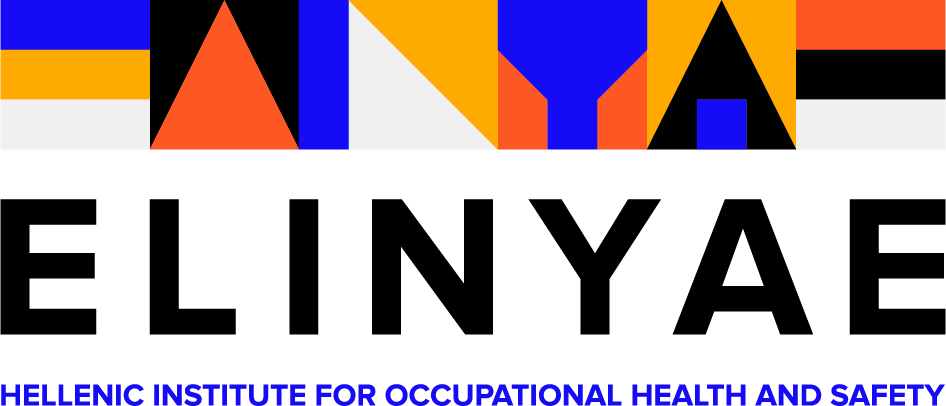
About the Conference
Welcome to the 11th European STAMP Workshop and Conference!!
An immersive experience dedicated to fostering innovation and knowledge exchange in the field of Systems Theoretic Accident Model and Processes (STAMP) model and tools.

STAMP (Systems-Theoretic Accident Model and Processes) and STPA (Systems-Theoretic Process Analysis) are methods based on systems theory and systems thinking that address safety and cybersecurity in complex systems, including software, human decision-making, social and organizational design, and safety culture. These methods are used across various industry sectors, such as aviation, air traffic control, space, defense, automotive, railways, chemicals, oil and gas, medical devices, healthcare, and workplace safety
STAMP is an accident causality model that integrates causal factors from various aspects of system design and operation STAMP fundamentally shifts the traditional view of accidents. Instead of seeing accidents as a chain of events, STAMP views them as complex interactions of various components within a system. It's a holistic approach that considers modern systems' intricate and interdependent nature, making it highly relevant for safety engineers dealing with complex technologies and systems.
STPA is a powerful hazard analysis technique based on STAMP. It is used to identify potential hazards and unsafe control actions (UCAs) in complex systems in the early stages of development processes.
Join Us
Join us in Alexandroupolis, Greece , for a series of engaging workshops, keynote speeches, and networking opportunities designed to advance the practice and application of systems thinking in safety and beyond.
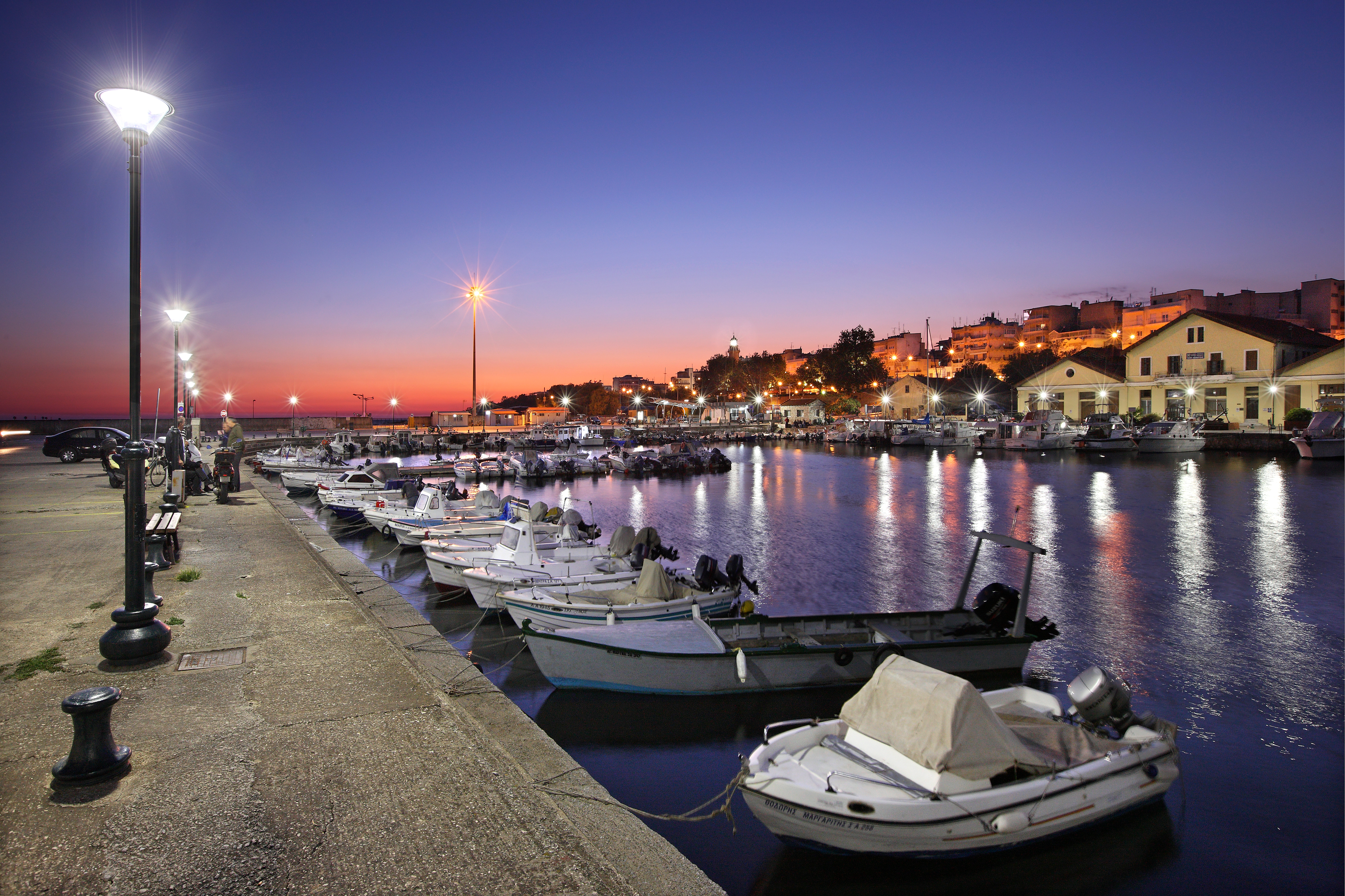
This year, our theme 'Advancing Safety in a Complex World' highlights the increasingly intricate systems we navigate and the innovative approaches required to manage risk and ensure resilience. Whether you're an industry veteran, a budding researcher, or a passionate safety professional, our conference is the perfect platform to propel your understanding and contribute to shaping the future of systems safety.
In an era where traditional system safety approaches are increasingly under scrutiny, the 11th European STAMP Workshop and Conference (ESWC) emerges as a great oportunity of comunicating new ideas and innovations.
We delve into the intricacies of modern systems, which are transformed by cutting-edge technology and escalating complexity in design, manufacture, and operation.
STAMP—Systems-Theoretic Accident Model and Processes—and its suite of tools stand at the forefront, offering systematic methodologies to proactively analyze and assess both existing and conceptual systems.
ESWC is the crucible where researchers and practitioners converge to share insights, apply, or acquaint themselves with STAMP's versatile applications across diverse sectors including aerospace, healthcare, defense, nuclear energy, railways, public infrastructure, and the automotive industry.
Topics
This year's conference is an exposition of practical experiences and theoretical advancements, covering an extensive range of topics:
- Application and advancements of STAMP, STPA, CAST, and other STAMP-based tools in various sectors, including but not limited to aviation, space, defense, automotive, railways, chemicals, oil and gas, medical devices, healthcare, and workplace safety.
- Strategies for introducing STAMP, STPA, and CAST within large-scale organizations.
- Innovative design paradigms guided by safety and security considerations using STPA and STPA-Sec.
- Decision-making frameworks informed by STPA analyses.
- In-depth accident and loss analysis and learnings.
- Discussion on certification and the impact of regulatory frameworks.
- Insightful evaluations and juxtapositions with traditional safety techniques.
- Advanced risk management approaches and the identification of leading indicators for system safety.
- Security applications and extensions into areas like workplace safety and beyond.
- Development and critical assessment of Safety Management Systems.
- Emerging tools, processes, and support mechanisms for STPA and CAST application in analysis and design.
- Management insights, adoption experiences, and the challenges faced therein.
- Explorations into emergent properties of systems beyond safety and security.
We invite you to join this collective endeavor to reshape the landscape of system safety and to push the boundaries of what is possible in protecting the integrity of complex systems worldwide.
Call for Extented Abstracts - Important Dates
Contribute your knowledge, ideas and experience at our conference by submitting your abstract.
We welcome fresh insights and research findings that advance the field of systems safety and STAMP tools. Selected papers will have the opportunity to be presented in front of a global audience of peers and leaders.
The deadline for submitting your extented abstract for the 11th ESWC is 13th of May 2024.
Extended abstracts should clearly outline the research's purpose, methods, results, conclusions and implications. Word limit is 500 - 1,500 words
Refer to the template below for guidelines for preparing your text.
Download TemplateTo submit your abstract please fill out the submission form
Submission FormAcceptance notification ------ 27th of May 2024
Registration Fees
Secure your spot at the forefront of systems safety innovation. Register for the 11th European STAMP Workshop and Conference and connect with thought leaders from around the globe. Take advantage of early bird rates, and student offers.
Early bird - Until Friday 16th of August 2024
Academics and Professionals - 300 Euros
PhD Students - 200 Euros
Late bird - From Saturday 17th of August 2024
Academics and Professionals - 400 Euros
PhD Students - 300 Euros
Meet Our Committees
Our distinguished committees bring together leading experts from academia, industry, and regulatory bodies to guide the conference's scientific and organizational excellence. Discover the minds steering the direction of our conference.
Scientific Committee
- Martin Rejzek, Zurich University of Applied Sciences, CH
- Nektarios Karanikas , Queensland University of Technology, AU
- Svana Helen Björnsdottir, Stiki, IS
- John Thomas, Massachusetts Institute of Technology, US
- Stefan Wagner, University of Stuttgart, DE
- Reyhaneh Sadeghi, Metrolinx, CA
- Anastasios Plioutsias, Coventry University, UK
- Ioannis Dokas, Democritus University of Thrace, GR
- Simon Whiteley, Whiteley Aerospace Safety Engineering & Management Limited, UK
- Osiris A. Valdez Banda, Aalto University, FI
- Jakub Montewka, Gdynia Maritime University, PL
- Floris Goerlandt, Dalhousie University, CA
- Apostolis Zeleskidis, Airbus, DE
- Maria Mikela Chatzimichailidou, University College London, UK
- Stavroula Charalabidou, Democritus University of Thrace, GR
- George Kafoutis, Democritus University of Thrace, GR
- Tom Kontogiannis, Technical University of Crete, GR
- Ioana Koglbauer, Airbus Defence and Space, DE
- Riccardo Patriarca, Sapienza University of Rome, IT
- Gulsum Kubra Kaya, Cranfield University, UK
- Stathis Malakis, Hellenic Civil Aviation Authority, GR
Organizing Committee
- Ioannis Dokas, Democritus University of Thrace, GR
- Maria Mikela Chatzimichailidou, University College London, UK
- George Kafoutis, Democritus University of Thrace, GR
Key Note Speakers
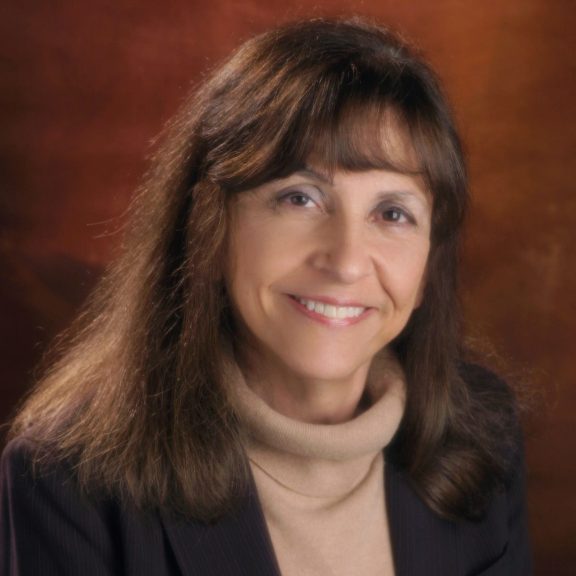
Nancy Leveson
is Professor of Aeronautics and Astronautics and also Professor of Engineering Systems at MIT. She is an elected member of the National Academy of Engineering (NAE). Prof. Leveson conducts research on the topics of system safety, software safety, software and system engineering, and human-computer interaction. In 1999, she received the ACM Allen Newell Award for outstanding computer science research and in 1995 the AIAA Information Systems Award for “developing the field of software safety and for promoting responsible software and system engineering practices where life and property are at stake.” In 2005 she received the ACM Sigsoft Outstanding Research Award. She has published more than 200 research papers and is the author of two books, “Safeware: System Safety and Computers,” published by Addison-Wesley (1995), and Engineering a Safer World, published by MIT Press (2012). She consults extensively in industries on ways to prevent accidents.
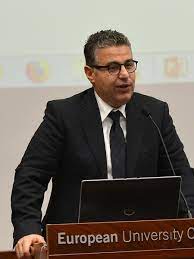
Georgios Boustras
is a Professor in Risk Assessment at European University Cyprus, Director of the Centre of Risk and Decision Sciences (CERIDES – Excellence in Innovation and Technology), Visiting Researcher at the National Observatory of Athens and Visiting Professor at University of Haifa. He is a Member of the EU Mission: Adaptation to Climate Change.George is a PhD in Probabilistic Fire Risk Assessment from CFES at Kingston University London (2003), he was Honorary Research Fellow at CPSE at Imperial College London (2003 - 2005), and KTP Research Fellow at FSEG at the University of Greenwich (2009). He sat at the Management Committee of Secure Societies - Protecting Freedom and Security of Europe and its citizens of “HORIZON 2020” for 7 years. George was a Member of the Socio Economic Assessment Committee (SEAC) of the European Chemicals Agency (ECHA) for 6 years. He was Advisor for Natural Catastrophes to HE the President of the Republic of Cyprus, Mr Nikos Anastasiades. Among other public duties, he was appointed by the Ministerial Council of the Republic of Cyprus to Head the Special Task Force that overlooked the modernization of the Fire Services. He was hired by World Bank to contribute to the modernisation of licensing services provided by the Fire Service of the Hellenic Republic. George is Editor-in-Chief of Safety Science.
Venue & Accommodation
Experience Greek hospitality at its finest. Our conference is hosted in Alexandroupolis, a modern city with a unique character, high quality of life and the center of the charismatic area of Evros. We've partnered with ASTIR EGNATIA ALEXANDROUPOLIS to provide you with comfortable accommodations at special rates. Very soon you will be able to recommended options and book your stay. 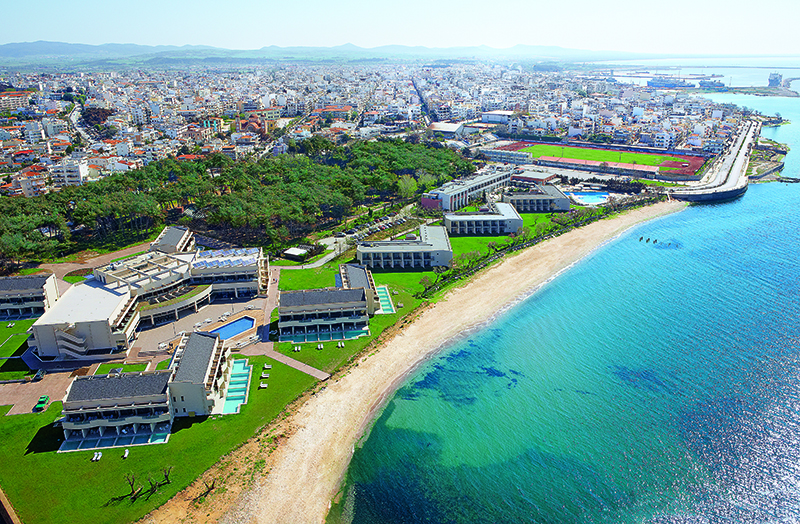
Travel Information
Here's a general guide.
By Air: There may be direct flights to Alexandroupolis ADX airport from major cities. Otherwise, travelers can fly to Athens ATH and take a domestic flight to Alexandroupoli's Democritus Airport.
Please visit AXD airport web site for more Information.
If you fly to Thessaloniki SKG airport you can rent a car or take a bus from Ktel Macedonia. Take the E90 highway which goes directly to Alexandroupolis. The trip is about 300 kilometers, taking around 3 hours.

By Car: From Athens, take the E75 highway north to Thessaloniki and then the E90 highway east towards Alexandroupolis. The journey is approximately 800 kilometers and can take around 7 to 8 hours. From Thessaloniki, the E90 highway goes directly to Alexandroupolis and the trip is about 300 kilometers, taking around 3 hours.
Tips for All Travelers
Visas: Ensure you have the right visa for entry into Greece, and any transit countries.
Travel Insurance: It's advisable to have travel insurance that covers the duration of the journey.
Currency: Have some Euros on hand for immediate expenses upon arrival.
Local Transport: Research the local transport options in Alexandroupoli, such as taxis, buses, or car rentals, for getting to the conference venue.
Contact Information
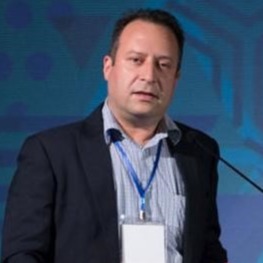
Ioannis M. Dokas, Associate Professor, Democritus University of Thrace
Email: idokas@civil.duth;gr
Tel:+302541079678